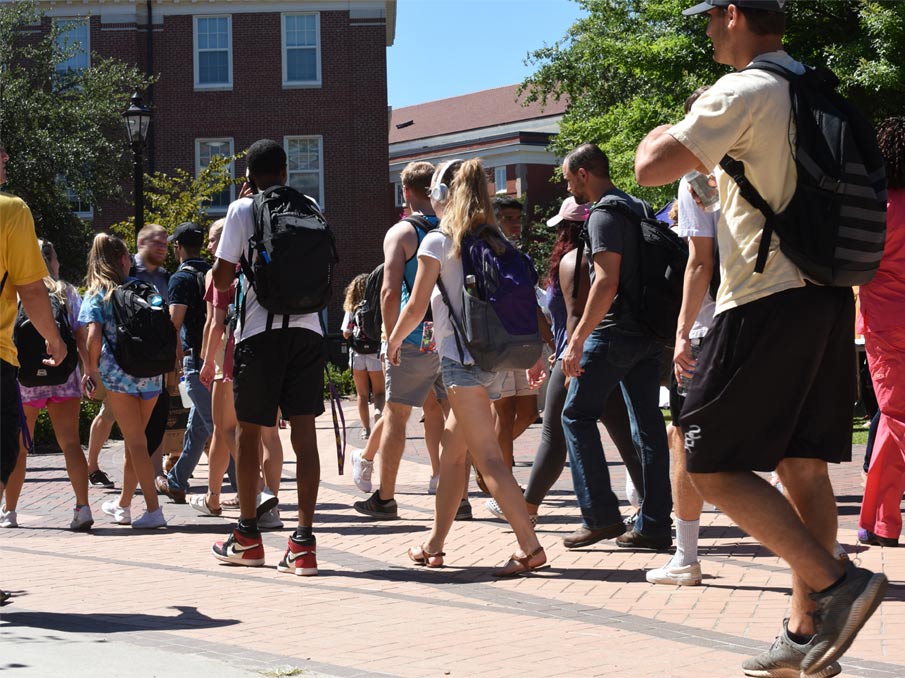
Now You’re In – Which College Do You Choose?
Congratulations! Your child has weathered the storm of high school GPAs, standardized tests, and college applications and has been accepted to a handful of schools, but now comes the final challenge: deciding which one to attend. There are several key factors to consider when making this decision, and we have outlined them below.
Locations
Where does your student want to live after college? Some soon-to-be high school graduates already have an idea of where they want to live as adults, and earning their undergraduate degrees in that specific city/region will increase their chances of finding gainful employment in that location.
What if they don’t know where they want to live? That’s okay! Even if post-graduate plans are up in the air, there are plenty of variables to consider when it comes to college location. Would your child prefer to live in a city or in the suburbs? In a warm or a cold climate? Near the ocean, mountains, countryside, etc.? Answering even a couple of these questions can help narrow down his or her options.
School Size
School size has an enormous impact on both
With regard to the academic experience, large universities often have seemingly endless resources and programs at each student’s disposal, which can promote diverse academic experiences. At the same time, however, it can be difficult for an individual to foster personal relationships with professors or other faculty in classes with 300+ students. Smaller schools may not always have the same amount of resources as larger ones, but their smaller average class sizes can be used to a student’s advantage.
Area of Study

Competitiveness
Although this is more common in graduate schools, some colleges and universities have a reputation for being more academically competitive and rigorous than others. Sometimes this can do a disservice to the emotional well-being of some students. If your student thrives in a more cooperative environment, it may be wise to avoid attending a school that is known for being overly-competitive. Take into account knowing your student and the environment in which he or she will thrive.
Social Life
A hallmark of the college experience is the social life that accompanies being a student. Fraternities and sororities are often the most accessible social clubs on any campus, so if your child wants to “go Greek,” he or she should research the Greek life at each school he or she is considering. That being said, there are always other avenues to create a meaningful social life in college. Clubs and intramural sports are always popular, and
The immediate area surrounding the campus also has an impact on the social experience. Do the fraternities and sororities have their own houses? Where can students go to hang out? Is the campus in the middle of a residential neighborhood or are there bars, restaurants, stores, etc. near the school?
Some schools are just more social than others, and a little research can easily help your student find a school with a social scene that suits him or her the most.
Financial Commitment
College is expensive. Even scholarships and need-based financial aid do not always cover the entire cost of tuition and living expenses for over four years. Public schools tend to be less expensive than private schools, and in-state public schools tend to be less expensive than out-of-state public schools. Beyond tuition, some schools are located in areas with higher costs of living than others, and this should be taken into consideration as well. Student loans are a huge commitment, and any opportunity to minimize how much debt your child will have to go into in order to attend college should be seriously considered.
Putting It All Together
There are plenty of things to consider when deciding which school to attend, and doing the research can seem overwhelming. Some of the most effective ways to answer your questions are to use the schools’ websites, speak to someone in the administration, attend admitted student days, take a tour of each campus, and find an opportunity for your child to have one-on-one time with current students to ask questions and get a real feel for college life. The schools and students know how daunting the process can be, and they are more than willing to lend a helping hand as your student decides where to attend.



